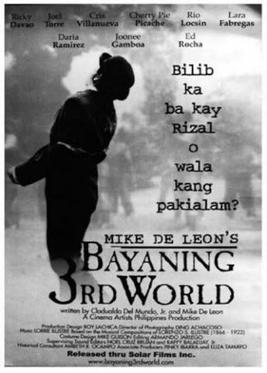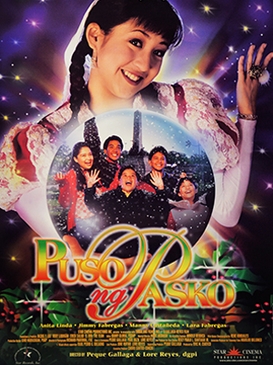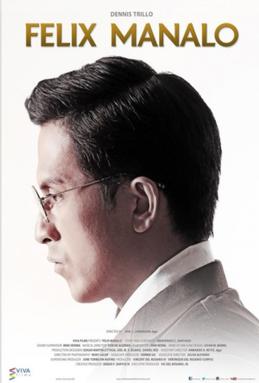
Citizen Kane is a 1941 American drama film directed by, produced by, and starring Orson Welles. Welles and Herman J. Mankiewicz wrote the screenplay. The picture was Welles' first feature film. Citizen Kane is frequently cited as the greatest film ever made. For 40 years, it stood at number 1 in the British Film Institute's Sight & Sound decennial poll of critics, and it topped the American Film Institute's 100 Years ... 100 Movies list in 1998, as well as its 2007 update. The film was nominated for Academy Awards in nine categories and it won for Best Writing by Mankiewicz and Welles. Citizen Kane is praised for Gregg Toland's cinematography, Robert Wise's editing, Bernard Herrmann's music, and its narrative structure, all of which have been considered innovative and precedent-setting.

The Warriors is a 1979 American action thriller film directed by Walter Hill. Based on Sol Yurick's 1965 novel of the same name, the film centers on a fictitious New York City street gang who must travel 30 miles (48 km), from the north end of the Bronx to their home turf on Coney Island in southern Brooklyn, after they are framed for the murder of a respected gang leader. The film was theatrically released in the United States on February 9, 1979, by Paramount Pictures.

Judy Anne Lumagui Santos is a Filipino actress and film producer. Prolific in film and television in the Philippines since the early 1990s, she is known for her comedic and dramatic roles in independent films and blockbusters, as well as for her portrayals of oppressed and impoverished women. She has received various accolades, including a Cairo International Film Festival Award, a Gawad Urian, two Luna Awards, two Metro Manila Film Festival Awards, and three FAMAS Awards.

LVN Pictures, Inc. was a Filipino film studio that was considered one of the biggest in the history of Philippine cinema and its foremost establishment in motion picture post-production until 2005. In its heyday of motion picture production, LVN Pictures has been compared to that of the Metro-Goldwyn-Mayer Studios (MGM) of Hollywood because it had, under contract, the biggest stars and film craftsmen of the period. Before its closure in 2005, LVN Pictures was known as one of the oldest living film studios in the country.

Ang Munting Paraiso is a Filipino weekly drama aired on ABS-CBN from March 6, 1999 to June 1, 2002, replacing Coney Reyes on Camera and was replaced by Tanging Yaman: The Series. It stars Coney Reyes in her first series since ...on Camera.

Ganito Kami Noon... Paano Kayo Ngayon? is a 1976 Philippine period drama film set in the end of Spanish colonization and the start of American colonization in the Philippines. Directed by Eddie Romero and written by Romero and Roy C. Iglesias, it stars Christopher de Leon and Gloria Diaz in the lead roles. The film was selected as the Philippine entry for the Best Foreign Language Film at the 49th Academy Awards, but was not accepted as a nominee.

Kisapmata is a 1981 Filipino psychological horror film directed by Mike de Leon, with a screenplay by de Leon, Clodualdo del Mundo Jr., and Raquel Villavicencio. It stars Vic Silayan, Charo Santos, Jay Ilagan, and Charito Solis. The plot was inspired by the crime reportage "The House on Zapote Street" written by Nick Joaquin. The piece chronicles the events leading up to the highly publicized familicide committed by Pablo Cabading, a retired policeman.

Turkey Shoot is a 1982 Australian dystopian action film directed by Brian Trenchard-Smith. Its ensemble cast — an eclectic mix of international stars, Australian soap opera veterans and character actors — is led by Steve Railsback, Olivia Hussey, Michael Craig, Noel Ferrier, Carmen Duncan, Roger Ward and Lynda Stoner. The film marks the first of three directorial collaborations between Trenchard-Smith and producer Antony I. Ginnane — the others being The Siege of Firebase Gloria (1989) and Arctic Blast (2010) — although the director had previously made promotional reels and trailers for Ginnane's earlier films.
Run Barbi Run is a 1995 Philippine comedy film directed by Tony Y. Reyes. Joey de Leon reprises his role as the titular character and is joined by Maricel Laxa and Eraserheads. It is third installment of the Barbi trilogy, which started with Barbi: Maid in the Philippines in 1989 and the political satire comedy Barbi for President in 1991.

Mary Jane Santa Ana Guck, known professionally as Jaclyn Jose, was a Filipino actress. Known for her penetrating eyes and antagonistic roles in film and soap operas, she was a recipient of various accolades, including five Gawad Urians, two Luna Awards, and a FAMAS Award, in addition to an Asian Film Awards nomination. She is the only Filipino to win the Cannes Film Festival Award for Best Actress for the movie Ma' Rosa (2016). She was also described as the "Queen of Underacting" for her ability to deliver restrained and subtle performances.

Evangeline Rose Gil Eigenmann, known professionally as Cherie Gil, was a Filipino actress. With a career spanning nearly 50 years, she was dubbed the "La Primera Contravida" for her acting prowess which landed her numerous antagonistic roles on film, television, and even on stage.

Bayaning 3rd World is a 1999 Filipino mockumentary film directed by Mike de Leon, with a screenplay written by de Leon and Clodualdo del Mundo Jr. It stars Ricky Davao and Cris Villanueva as two filmmakers discussing how to go about creating a film on José Rizal.
Dante Rivero is a Filipino film and television actor who has won a FAMAS award and nominated for a Gawad Urian Award.

Puso ng Pasko is a 1998 Filipino comedy-drama fantasy film written and directed together by Peque Gallaga and Lore Reyes, with Paul Daza as the additional writer for the film. It stars Jason Salcedo, Justin Simoy, Korinne Lirio, Emman Abeleda, and Jolina Magdangal.

Felix Manalo is a 2015 Filipino biographical film about the life of Felix Ysagun Manalo, the first Executive Minister of the Iglesia ni Cristo, and the church he preached. Manalo is regarded by the members of the Iglesia ni Cristo as the last messenger of God and the restorer of the true Church of Christ, whom the INC gives the title Sugò. The story and screenplay were written by INC evangelism head Bienvenido Santiago. The film was directed by Joel Lamangan. All content of the film was screened and approved by the INC.

Alpha Kappa Omega Batch '81 is a 1982 Filipino psychological drama film directed by Mike de Leon, with a screenplay by de Leon, Clodualdo del Mundo, Jr., and Raquel Villavicencio. The film depicts the titular fraternity's harsh initiation of new batch members as seen through the eyes of pre-med student Sid Lucero, played by Mark Gil in what is generally recognized as his breakout role.
Noli Me Tángere is a 1961 Philippine period drama film co-written and directed by Gerardo de León. Based on the 1887 novel of the same name by José Rizal, it stars Eduardo del Mar, Edita Vital, Johnny Monteiro, Oscar Keesee, Teody Belarmino, and Leopoldo Salcedo. The film was released on June 16, 1961, timed with the centenary of Rizal's birth.
Maximalist film or maximalist cinema is related to the art and philosophy of maximalism.

Ekis: Walang Tatakas is a 1999 Philippine crime drama film co-written and directed by Erik Matti. The film stars Sunshine Cruz and Albert Martinez.
Magic Kingdom: Ang Alamat ng Damortis is a 1997 Philippine fantasy adventure film directed by Peque Gallaga and Lore Reyes. The film stars Jason Salcedo, Janus del Prado, Junell Hernando and Jun Urbano. It was one of the entries in the 1997 Metro Manila Film Festival, where it won as 3rd Best Picture. It marks the theatrical debut of Anne Curtis.















